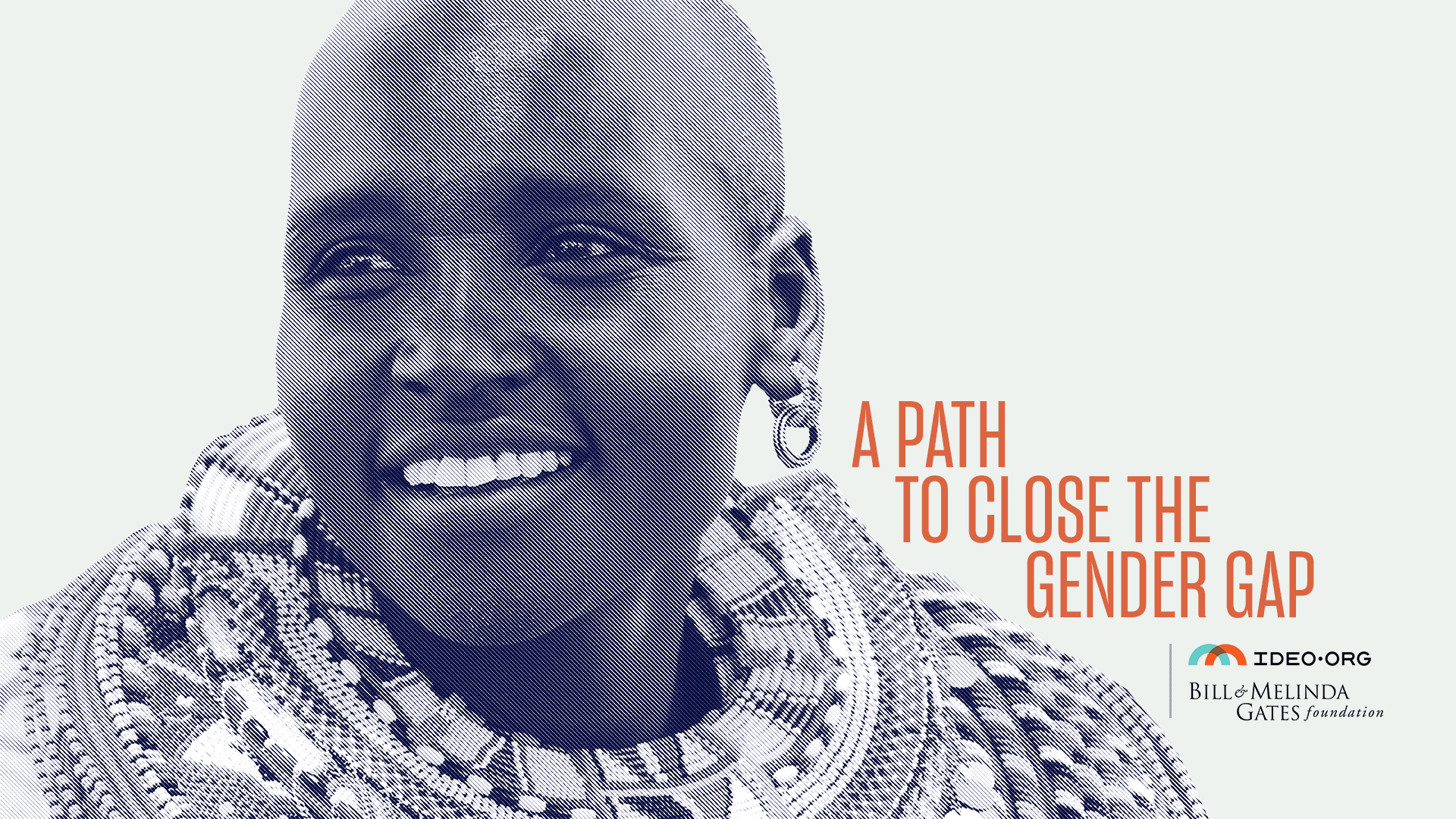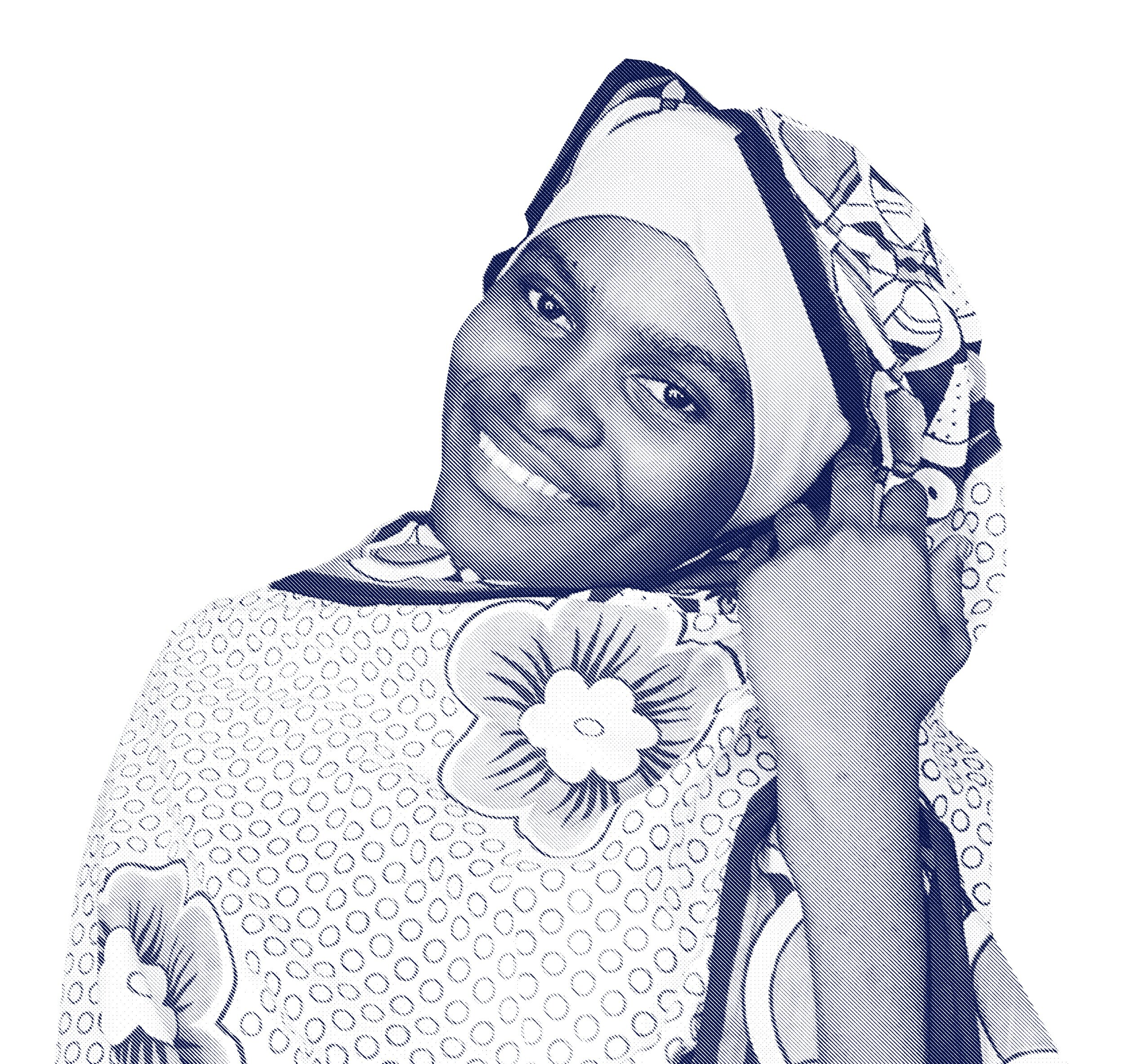
ABOUT WOMEN and MONEY
Women and Money is an IDEO.org program funded by the Bill and Melinda Gates Foundation. It is a two-year initiative to surface the complex realities that keep women excluded from financial services and build solutions that unlock new opportunities to include women. In 2019, we conducted research in six contexts: Tanzania, Bangladesh, Kenya, Nigeria, Pakistan, and India culminating in a report that illuminates global insights and opportunities for design.
We were inspired by the women we met. We hope you will be too.





opportunities for design
Opportunity areas are generative launch points for multiple solutions across multiple actors.
01. Flex and strengthen her financial muscles. Make headway for new ones.
"All our children go to school with money we saved through the savings group." —Amina, Northern Kenya
Money is widely considered the domain of men, but women play a critical role as household savers and budgeters. But their pinching, saving, and planning isn’t valued, recognized, or built on. Elevate the financial behaviors women already employ and create new learning opportunities. For women who are able to earn, help them manage and grow their income.
02. Meet her where she is; don’t make her come to you.
“If I need money, I would ask my family, but I'm hardly able to give if they need. They would come bring me the money at home...how else can I get it?”—Indira, India
Financial services are designed for skills, resources, and access she often doesn’t have—they’re for the mobile, literate, numerate, banked, and in the case of DFS, tech savvy. Build services that are accessible, tailored, safe for her to access, and low-barrier of entry. Design for low-literacy first by leveraging voice and iconography—and going to the places she frequents: savings groups, at the market, where she runs errands. Invite her in.
03. Supercharge her allies and guides
“I go to town and do all my transactions by myself, my kids taught me on how to do it.”
— Marisa, Northern Kenya
Women leverage guides and proxies of all kinds to help them access financial services: trusted family members, neighbors, support systems, and agents. Design for her control, power, and learning with each interaction by making it easier for proxies and guides alike to support her. Build tools and services that help proxies and allies to guide, teach, and supporting women.
04. Help her take leaps when gender norms relax
“Marriage is about partnership. Today I have and tomorrow he has.”—Jackie, Tanzania
Rigid rules define what is acceptable and safe for women. She’s rewarded for playing by them and punished for breaking them. However, there are key inflection points—moves, marriage, birth of a child, and crises—when gender norms may relax. Help women get proactive and increase their financial influence and control during these moments. These transitions can spark discussions about existing norms. Create cross-sector solutions with relevant community-based partners that currently serve women in these moments, like community health organizations and religious institutions.
05. Expand her idea of what’s possible.
“I would prefer to receive financial advice from a woman. Someone who will be close to me. Right now, I just ask myself.”—Fatima, Tanzania
There are few narratives or examples that invite her to imagine herself role as a financial contributor and protagonist. Yet, a single bold woman can shift perceptions and possibilities for the women around her. Fuel her with stories of women like her who are pushing norms. Show new ways to earn and participate in household finances. Build confidence to venture into new roles—even small steps. Help more powerful women see themselves as role models for others.
COUNTRY REPORTS
Nigeria Report: Research conducted in 2019
Pakistan Report: Research conducted in 2019
Tanzania Report: Research conducted in 2018
Lifestages Report: Project conducted in 2020-2021
Bangladesh Report: Research conducted in 2019
India Report: Research conducted in 2019
Indonesia: Research conducted in 2021. English report is available here and Bahasa Indonesia report here.
Kenya: Research conducted in 2019
Contact
We believe women owning their financial futures is inevitable, but will be hard-won. Join us, because together we can build a more equitable future.
Connect with us
Working on something similar to Women & Money? Interested in building with our program? Email us to connect.









